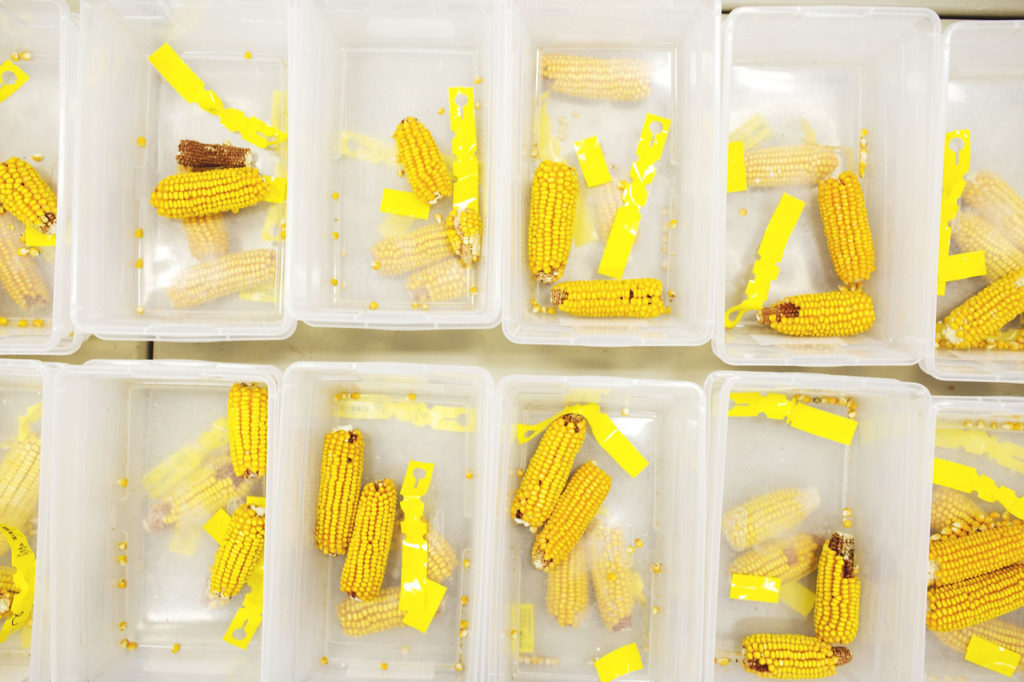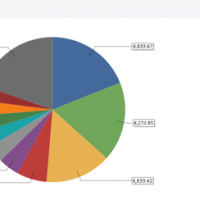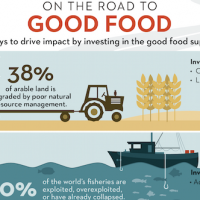
Every week we track the business, tech and investment trends in CPG, retail, restaurants, agriculture, cooking and health, so you don’t have to. Here are some of this week’s top headlines.
Two weeks ago, the USDA stated certain gene-edited plants can be designed, cultivated and sold free from regulation. A battle for public opinion is now under way even before the new gene-edited foods hit the market. Meanwhile, Republicans have released the first draft of the 2018 farm bill, which leaves much to be desired.
As Kraft Heinz struggles with sliding sales and a falling stock price, it recently announced a partnership with celebrity chef David Chang to help take Momofuku Ssam sauce national.
Walmart has announced a $477m expansion plan, with aims to remodel 500 stores and open 20 new locations across more than two dozen states. Despite news of big box grocery expansion, smaller startups like The Goods Mart and Hank’s Mini Market are small-format convenience stores to offer healthy foods in Los Angeles.
Check out our weekly round-up of last week’s top food startup, tech and innovation news below or peruse the full newsletter here.
_______________
1. Is This Tomato Engineered? Inside the Coming Battle Over Gene-Edited Food – Wall Street Journal
The agriculture industry, which hopes CRISPR technology will transform the business, faces opponents who call it ‘GMO 2.0’.
2. Kraft Heinz Is Partnering With Momofuku to Stay Relevant – Bloomberg
The ketchup maker will use its expertise in food production and distribution to help Chang take his Momofuku Ssam sauce national for the first time.
3. Q1 2018: The State of FoodTech – New Crop Capital
We are in a “new normal” for agrifood tech funding. Investment in the nutrition biotech and agtech space shot up more than 1200% between 2014 and 2017, with a 29% surge in investment volume in the past year alone.
4. This Healthy Convenience Mart Aims to Take on 7-Eleven – Fast Company
The Goods Mart is a healthy convenience store committed to smarter eating. Its first location is located in Los Angeles.
5. Why a Small South LA Market’s Fresh Food Facelift Is a Big Deal – LA Mag
Hank‘s Mini Market is working with the LA Food Policy Council, the local arts community and Sweetgreen to offer healthy food and community empowerment to the neighborhood.
6. Get Ready for the 2018 Farm Bill Fiasco – Eater
The farm bill has become the latest partisan battle. It was written by Republicans behind closed doors, and they’re hoping it passes quickly before anyone even has time to read it.
7. Walmart Heats Up Florida, Texas Grocery Wars with $477M Expansion Plan – Food Dive
The grocer plans to remodel 500 stores and open 20 new locations across more than two dozen states as part of its $11b capital expenditure. The majority of remodels will be in Texas and Florida.
8. Impossible Foods Arrives in Hong Kong – Bloomberg
CFO and COO David Lee discusses the Hong Kong launch and the environmental advantages of Impossible Foods products.
9. Inocucor Makes ‘First of Many’ Acquisitions, Closes Series B on $55.9M – AgFunder
Inocucor has acquired ATP Nutrition. Its additional funding came from TPG Alternative and Renewable Technologies, Cycle Capital Management, Desjardin Innovatech and Pontifax AgTech.
10. Plant-Based Seafood Company Good Catch Foods Nets $5.5M – The Spoon
Funding came from Stray Dog Capital to help the company get its fish-free tuna to market by the end of 2018.
11. Marketing Platform Punchh Raises $20M Series B to Give Brick-and-Mortar Retailers Better Data Analytics – TechCrunch
The funding was led by Sapphire Ventures, with participation from returning investor Cervin Ventures. It plans to expand into more retail verticals and increase the use of AI and machine learning in its cloud software. The platform now serves over 115 restaurant chains.
12. USDA Emails Suggest Trump Will Allow Drug Testing for Food Stamp Users – New Food Economy
Conservative leaders have long pushed to make drug-testing a prerequisite for social welfare programs, including SNAP. They may finally get their wish.
13. Uber Eats Is the Fastest-Growing Meal Delivery Service in the US – Recode
People are now spending more on Uber Eats than on any other food delivery service in nine of the 22 most-populous US cities. The company has brought in nearly as much new customer revenue as GrubHub.
14. Annie’s Plans to Source Ingredients Across Its Portfolio from Farms Practicing Regenerative Agriculture – Food Navigator
The company launched two limited edition products made with ingredients sourced from regenerative agriculture farmers. It marks the beginning of how the brand plans to restore degraded soil and enhance farming communities.





